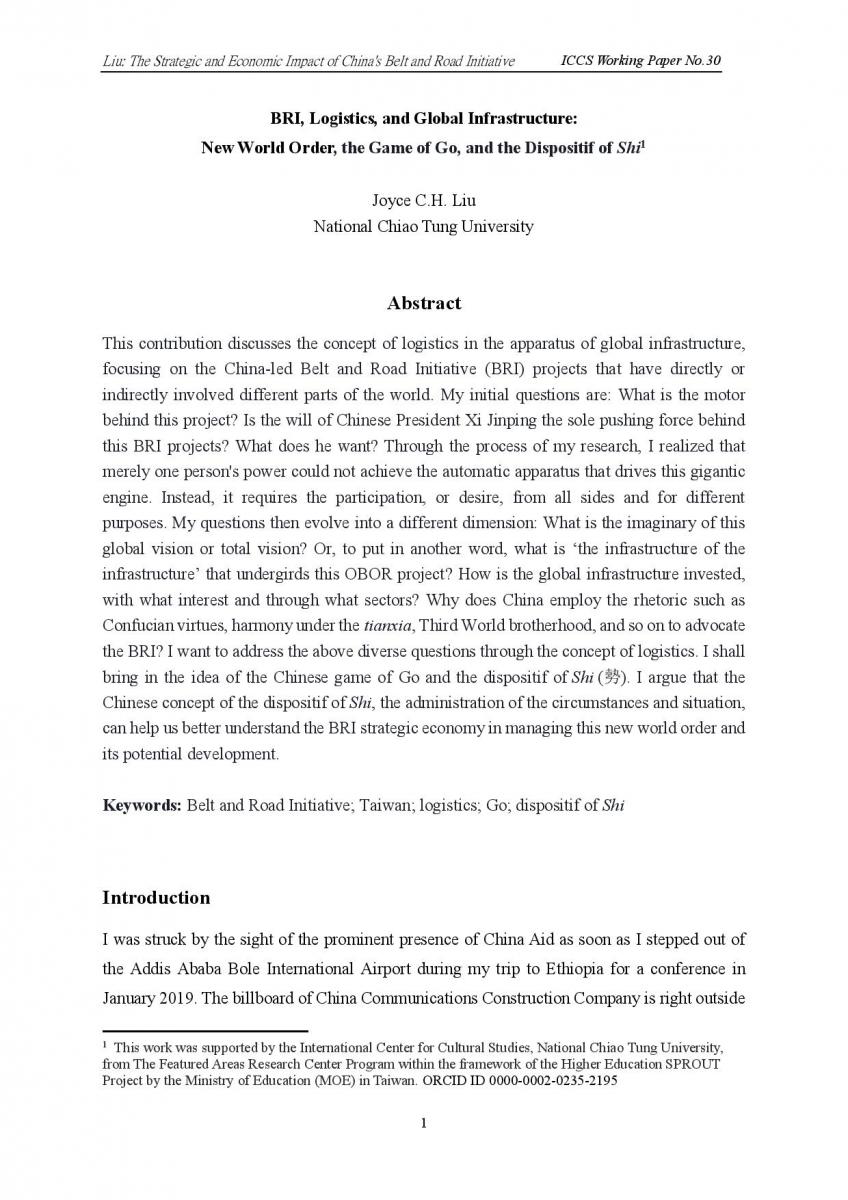

ICCS WPS 30 BRI, Logistics, and Global Infrastructure: New World Order, the Game of Go, and the Dispositif of Shi
Author/Speaker|Joyce C. H. Liu
Publication Date|2020-07
Keywords|Belt and Road Initiative; Taiwan; logistics; Go; dispositif of Shi
Abstract
Abstract
This contribution discusses the concept of logistics in the apparatus of global infrastructure, focusing on the China-led Belt and Road Initiative (BRI) projects that have directly or indirectly involved different parts of the world. My initial questions are: What is the motor behind this project? Is the will of Chinese President Xi Jinping the sole pushing force behind this BRI projects? What does he want? Through the process of my research, I realized that merely one person's power could not achieve the automatic apparatus that drives this gigantic engine. Instead, it requires the participation, or desire, from all sides and for different purposes. My questions then evolve into a different dimension: What is the imaginary of this global vision or total vision? Or, to put in another word, what is ‘the infrastructure of the infrastructure’ that undergirds this OBOR project? How is the global infrastructure invested, with what interest and through what sectors? Why does China employ the rhetoric such as Confucian virtues, harmony under the tianxia, Third World brotherhood, and so on to advocate the BRI? I want to address the above diverse questions through the concept of logistics. I shall bring in the idea of the Chinese game of Go and the dispositif of Shi (勢). I argue that the Chinese concept of the dispositif of Shi, the administration of the circumstances and situation, can help us better understand the BRI strategic economy in managing this new world order and its potential development.
Author's Bio:
Joyce C.H. Liu is Professor of Critical Theory, Comparative Literature, Visual Studies and Cultural Studies in the Institute of Social Research and Cultural Studies, National Chiao Tung University, Taiwan. It is the program that she founded in 2002, the first graduate program of cultural studies in Taiwan, an inter-disciplinary and trans-disciplinary postgraduate program that addresses contemporary critical issues. She is currently the director of the cross-universities research center, International Center for Cultural Studies of the University System of Taiwan, a network system connecting four distinguished research-oriented universities in Taiwan, together with an international graduate program in Inter-Asia Cultural Studies supported by these four universities. Her research covers the critique of East-Asian modernity, Chinese political thoughts in the 20th century, focusing on issues related to the questions of bio-politics, border politics, unequal citizenship, civic exclusion, and internal coloniality.
